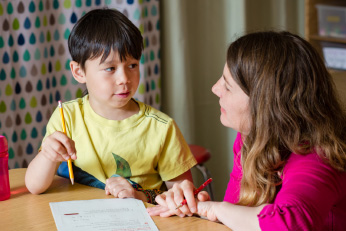
What do our students learn from melding facts with feeling?
When Campus School students study the Montgomery Bus Boycott, they master historical facts and trace the timeline of events, learn the names of civil rights leaders, and read a biography of Rosa Parks. But, guided by our teachers, they also inhabit the emotional experience of confronting injustice and lodging protest, and consider how the hard-earned accomplishments of our past can lead us in the work still to be done.
As our students walk with schoolmates in a re-enactment of a protest march, they also take formative steps toward meaningful membership in a community that goes far beyond our campus borders or our close-knit school family—hitting their strides early as engaged citizens, change makers, and contributors. Most importantly, they learn to think and feel their way through issues of social justice at the same time—applying reason while also registering empathy, engaging the logical complexities of an issue while also weighing the ethical considerations of the situation. The result is an understanding that goes deeper than names, dates, or headlines.
Our approach to character development starts in the classroom—with how we speak and listen to one another, how we deal with emotional and intellectual disagreements, and how we study everything from history (and human experience) to science (and environmental stewardship). What begins here, however, sparks an empowered and active empathy, which prepares students to not only enter the world, but to engage and better it.

“I could take my child anywhere to develop his potential as a good math or English student. I want him here because these teachers know how to develop his full potential as a good person.” - parent

